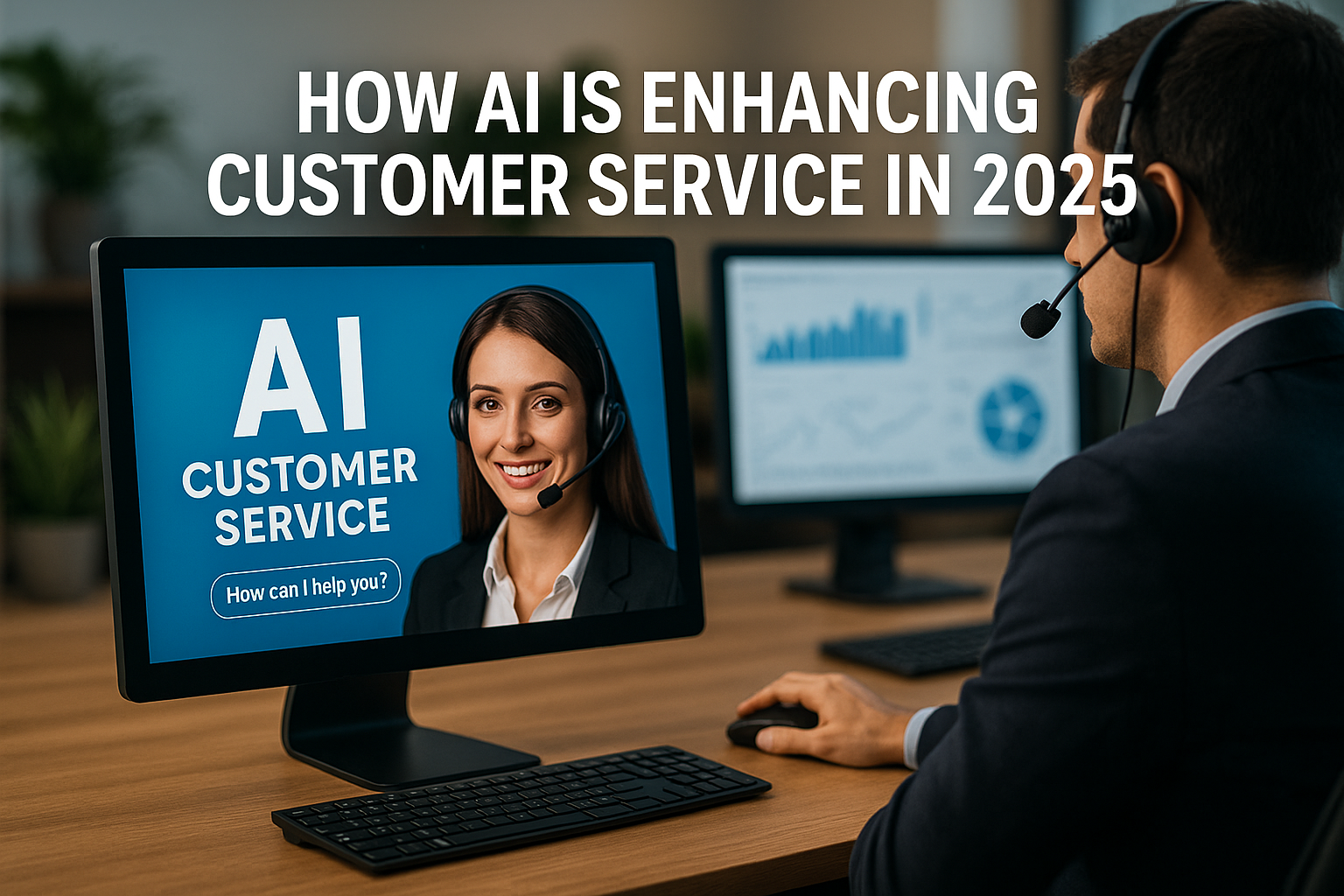Customer service is undergoing a major transformation, and Artificial Intelligence (AI) is the driving force behind this evolution. In 2025, AI isn’t just a novelty — it’s a standard part of delivering fast, efficient, and personalized support across industries.
With advancements in natural language processing, sentiment analysis, and predictive algorithms, AI is redefining what customer service means. In this article, we’ll explore how AI is enhancing customer service in 2025 and what businesses and consumers can expect moving forward.
The Rise of AI in Customer Service
In the past, customer service was limited by human availability and manual processes. Long wait times, inconsistent answers, and limited personalization were common frustrations.
Today, AI changes all that by offering:
- 24/7 support availability
- Consistent and accurate responses
- Instant access to vast knowledge bases
- Predictive and proactive service
Let’s explore the main ways AI is improving the customer experience in 2025.
1. AI-Powered Chatbots That Feel Human
Gone are the days of robotic replies and frustrating loops. In 2025, AI-powered chatbots are capable of:
- Understanding complex queries
- Recognizing emotion and tone
- Holding natural, human-like conversations
Examples:
- Bank bots that help with payments, transfers, and fraud alerts
- Airline bots that rebook flights and answer questions in seconds
- E-commerce bots that guide purchases and provide personalized help
These bots reduce reliance on human agents for repetitive tasks and allow teams to focus on complex or sensitive issues.
2. Voice AI for Instant, Hands-Free Support
With the rise of smart speakers and voice assistants, voice-based AI has become an integral part of customer support. In 2025:
- Customers can speak to AI agents through phones or home devices
- AI understands regional accents and informal language
- Real-time transcription and action make interactions seamless
Use case: A customer simply says, “Alexa, where’s my order?” and the assistant replies with real-time shipping updates.
3. AI-Driven Sentiment Analysis
AI tools now analyze the emotional tone of messages — whether it’s in text, email, or speech. Sentiment analysis helps businesses:
- Detect frustration or confusion early
- Escalate issues to human agents when necessary
- Customize responses based on mood
This results in more empathetic service and reduces customer churn.
4. Predictive Customer Service
AI in 2025 doesn’t just react — it anticipates. Predictive analytics allows businesses to:
- Proactively reach out before problems arise
- Suggest solutions based on user behavior
- Prevent service outages or delays with real-time alerts
Example: A telecom company can detect unstable internet and offer a fix before the customer even complains.
5. Omnichannel AI Integration
AI seamlessly connects across platforms:
- Social media
- Messaging apps
- Live chat
- Voice support
Customers no longer have to repeat themselves when switching from one channel to another — AI keeps track of the entire conversation history and context.
6. AI for Agent Assistance and Training
Even human agents benefit from AI support:
- AI recommends answers during live chats
- Offers real-time coaching
- Provides customer history instantly
- Flags risky or non-compliant language
This leads to shorter response times and better service outcomes.
7. Self-Service Powered by AI
AI enables smarter, faster self-service options through:
- Interactive help centers
- AI-generated FAQs
- Visual guides and tutorials
These tools reduce support tickets while empowering users to solve issues independently.
8. AI That Adapts to Industry-Specific Needs
AI systems are now fine-tuned for industry-specific applications:
- Healthcare: Helping patients book appointments and refill prescriptions
- Finance: Answering account and loan-related questions securely
- Retail: Managing orders, returns, and personalized shopping support
This domain-specific training improves accuracy and compliance with regulations.
Ethical Considerations and Challenges
While AI is enhancing customer service, it also raises important concerns:
- Data privacy: AI systems process personal data and must comply with strict privacy laws like GDPR or CCPA.
- Bias: AI must be monitored to ensure fair and equal treatment across demographics.
- Over-automation: Some users may still prefer human contact, especially in emotionally sensitive situations.
Businesses must strike the right balance between automation and human empathy.
The Future of Customer Service Is Hybrid
By 2025, the best customer experiences come from a hybrid model: AI handles routine tasks instantly and accurately, while human agents focus on building relationships, solving complex issues, and showing true empathy.
As AI continues to evolve, expect even more immersive experiences:
- Real-time video AI support
- Holographic assistance in physical stores
- Hyper-personalized recommendations based on individual preferences
The brands that succeed will be the ones who combine technology with a human touch.
Embracing AI in Customer Service
If you’re a business looking to adopt AI in your customer service strategy, here’s how to start:
- Identify repetitive queries that can be automated.
- Choose AI platforms that integrate with your CRM and support channels.
- Train your AI using actual customer data — ethically and securely.
- Continuously review performance and improve with human oversight.
Customer expectations in 2025 are higher than ever — and AI offers the tools to meet and exceed them.
